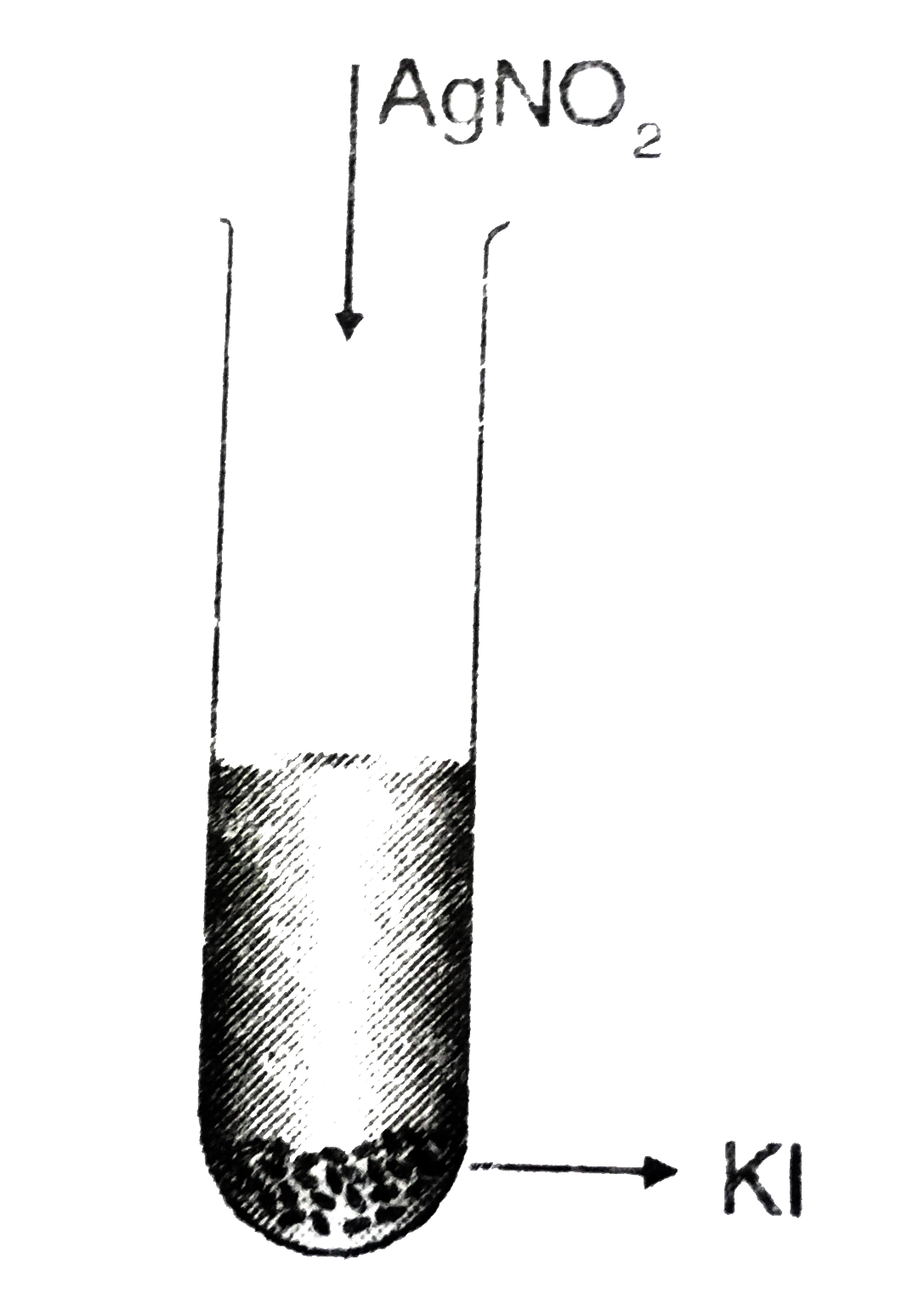which of the following electrolyte will be most effective in coagulation of negative sol ?
KNO3
K4[fe(CN)6]
Na3PO4
MgCl2
The correct Answer is:d
To determine which electrolyte is most effective in coagulating a negative sol, we can follow these steps:
1. Understanding Coagulation: Coagulation refers to the process where colloidal particles aggregate to form a larger particle, which can then settle out of the solution. For a negative sol, we need to add an electrolyte that provides positive ions.
2. Hardy-Schulze Rule: According to the Hardy-Schulze rule, the effectiveness of an electrolyte in coagulating a colloidal solution is directly related to the valency of the positive ion in the electrolyte. The higher the valency, the more effective the coagulation.
3. Analyzing the Options:
- Option 1: KNO3:
- K+ has a valency of +1.
- Option 2: K4(Fe(CN)6):
- K+ has a valency of +1. The complex ion (Fe(CN)6)4- does not contribute to the positive charge.
- Option 3: Na3PO4:
- Na+ has a valency of +1. The PO4^3- ion does not contribute to the positive charge.
- Option 4: MgCl2:
- Mg2+ has a valency of +2. Cl- ions do not contribute to the positive charge.
4. Comparing the Valencies:
- KNO3: +1
- K4(Fe(CN)6): +1
- Na3PO4: +1
- MgCl2: +2
5. Conclusion: Since MgCl2 has the highest positive charge (+2), it will be the most effective electrolyte for coagulating a negative sol.
Final Answer:
The most effective electrolyte in coagulating a negative sol is MgCl2.
---
- Option 1: KNO3:
- K+ has a valency of +1.
- Option 2: K4(Fe(CN)6):
- K+ has a valency of +1. The complex ion (Fe(CN)6)4- does not contribute to the positive charge.
- Option 3: Na3PO4:
- Na+ has a valency of +1. The PO4^3- ion does not contribute to the positive charge.
- Option 4: MgCl2:
- Mg2+ has a valency of +2. Cl- ions do not contribute to the positive charge.
- KNO3: +1
- K4(Fe(CN)6): +1
- Na3PO4: +1
- MgCl2: +2
The most effective electrolyte in coagulating a negative sol is MgCl2.
Similar Questions
Knowledge Check
Select the correct alternative from the choices given:
Which of the following electrolytes is least effective in causing flocculation of positively charged ferric hydroxide sol?AK3[Fe(CN)6]BK2CrO4CK4[Fe(CN)6]DKBr
Most effective ion to coagulate a negative sol is:
View SolutionAnswer the following questions :
(i) Which of the following electrolytes is most effective for the coagulation of AgI/Ag+ sol ?
a. MgCl2,K2SO4,K4[Fe(CN)6]
(b) What happens when a freshly precipitated Fe(OH)3 is shaken with a little amount of dilute solution of FeCl3.
(c) Out of sulphur sol and proteins, which one forms macromolecular colloids ?
View Solution(a) A colloidal sol is prepared by the given method in figure. What is the charge of AgI colloidal particles in the test tube ? How is the sol formed, represented?
 (b) Explain how the phenomenon of adsorption finds application in Heterogeneous catalysis.
(b) Explain how the phenomenon of adsorption finds application in Heterogeneous catalysis.
(c) Which of the following electroytes is the most effective for the coagulation of Fe(OH)3 sol which is a positively charged sol?
NaCI,Na2SO4,Na3PO4
View SolutionWhich of the following ielectrolytes is least effective in causing flocculation of ferric hydroxide sol?
View SolutionWhich of the following ielectrolytes is least effective in causing flocculation of ferric hydroxide sol?
View SolutionWhich one of the following electrolytes is most effective for the coagulation of Fe(OH)3sol and why?
NaCl,Na2SO4,Na3PO4
View SolutionArsenic (III) sulphide forms a sol with a negative charge.
Which of the following ionic substances should be most effective in coagulating the sol?
View Solution
